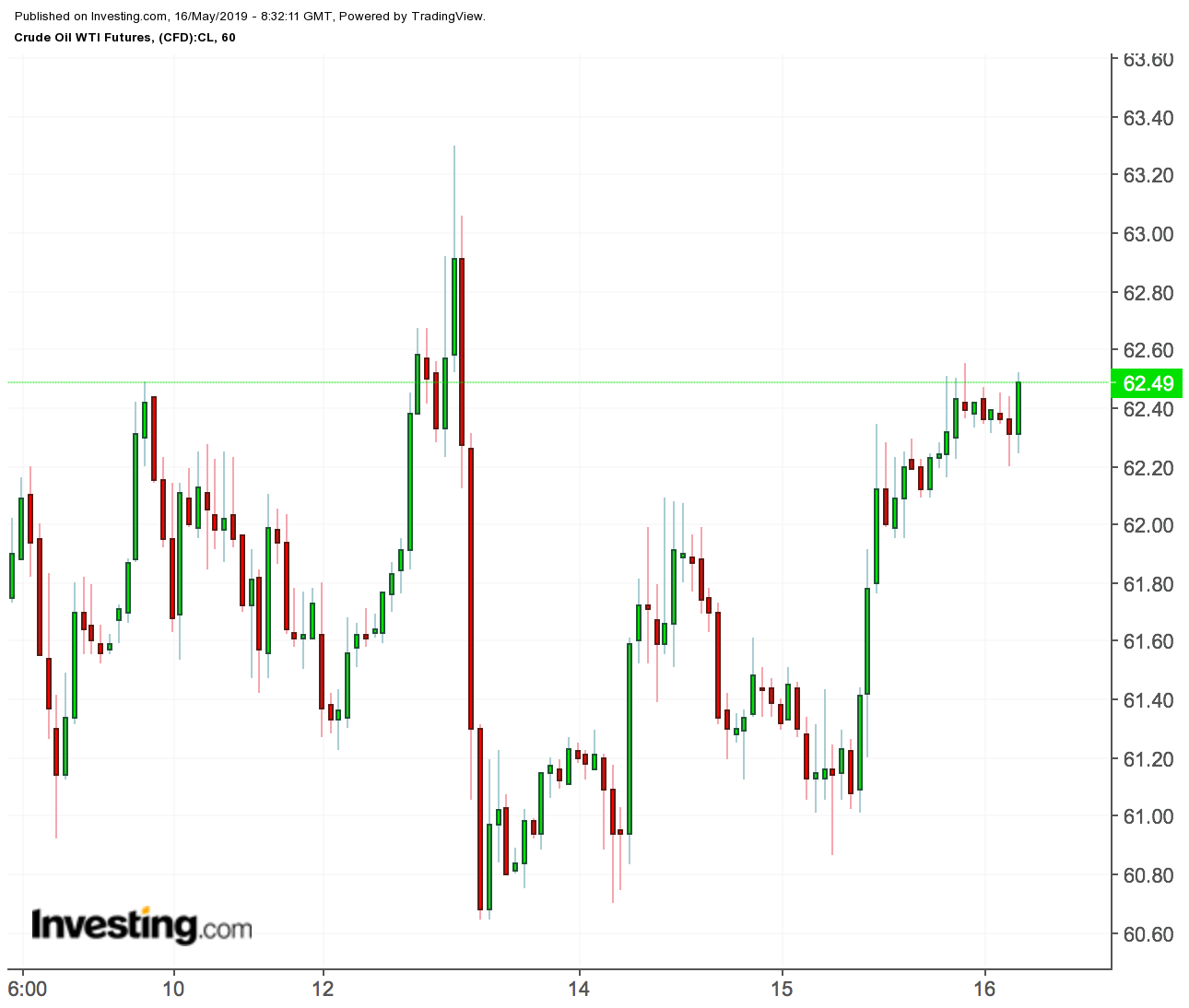Tensions are rising in the Persian Gulf. This is the message coming from every media outlet. The United States is beefing up its naval and air force presence in the region and evacuating unnecessary personnel from Iraq. The rhetoric from Iranian leadership is escalating, including threats to close the Strait of Hormuz and statements from the Iranian Revolutionary Guard Corps such as, “If [the Americans] make a move, we will hit them in the head.”
Nevertheless, oil markets, which have traditionally been very sensitive to potential conflicts in the Persian Gulf region, have not been reacting very strongly to this news. On Sunday, four oil tankers parked near the Fujairah port in the UAE were “sabotaged” and sustained damage to their outer hulls. But oil prices only went up by 2% before those gains were quickly erased.
On Tuesday morning, two pump stations along the East West pipeline that traverses Saudi Arabia were attacked by armed drones. The pipeline had to be shut down, but prices only climbed 1.5% in the morning. Most of those gains were gone by the close of trading Tuesday.

Reports surfaced that the U.S. might be preparing a plan to send 120,000 troops to the Middle East, which President Trump later denied, but oil prices did not react. According to the headlines, the U.S. and Iran are drawing closer to armed conflict, but oil prices don’t seem to be listening. Here’s why:
1. Traders know the headlines are designed to generate clicks and controversy.
Initially, both incidents of damage to infrastructure were reported as much more severe than they actually were. In reality, they were minor and did not impact oil production or exports — none of the four boats that suffered damage were carrying any oil. The damage to the pump stations was minor and the pipeline resumed normal operations the next day.
Satellite images from TankerTrackers.com of both incidents quickly raised questions about the purported severity and helped make clear that these issues would not impact the flow of oil. Traders are getting tired of seeing statements from Saudi and Iranian sources declaring significant attacks only to learn that the actual events were relatively minor and had no impact on oil supplies.
2. Markets are much more concerned with the trade negotiations between China and the U.S. right now.
Though negotiations have not broken down, an agreement has not been reached and both countries are continuing to raise tariffs on each others’ goods. The concern is that the trade war will usher in a recession that will depress oil prices. These concerns are weighing much more heavily on traders’ minds than any saber rattling in the Persian Gulf.
3. Traders are more interested in demand than supply right now.
The OPEC monthly statistical report for April, which was released on Tuesday, forecasts that oil demand for 2019 will be only 1.21 million barrels per day higher than last year. On Wednesday, the IAE released its latest forecasts for demand growth and reduced its outlook by 90,000 bpd to a growth of only 1.3 million bpd. This news has tempered any potential gains in oil prices.
4. Markets are waiting to see what OPEC decides.
The JMMC is meeting in Jeddah at the end of this week and will evaluate progress towards reducing global oil inventories. However, it is not likely that the committee will make any recommendations about whether OPEC and its non-OPEC partners should continue with their current production agreement. That decision will likely wait until the end of June when the entire group meets in Vienna.
